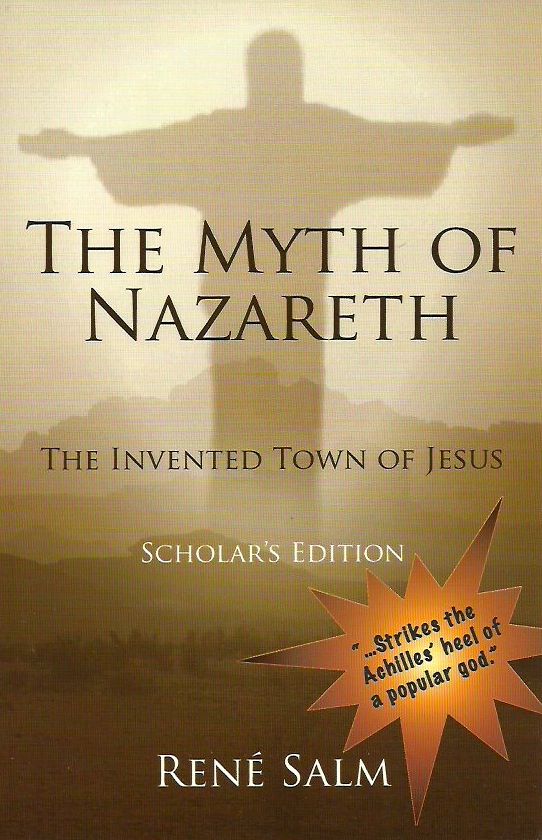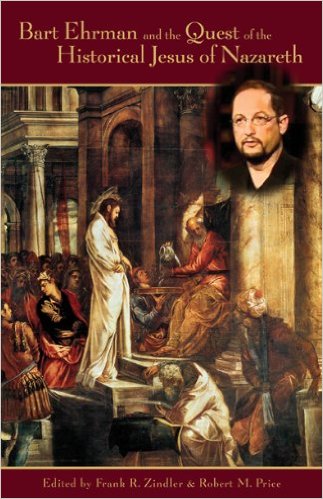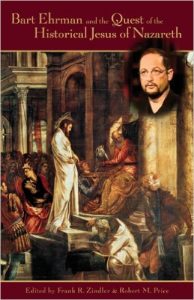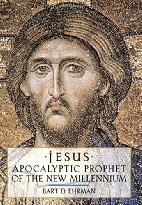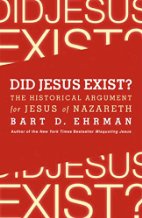This post concludes my notes on the Milwaukee Mythicist sponsored debate between Bart Ehrman and Robert M Price. It is based on notes I took as I listened, and since I have not listened to this part of the debate since, I cannot check my notes for accuracy or to add any completeness. Perhaps some readers will find it useful to compare René Salm’s notes. BE = Bart Ehrman and RMP = Bob Price.
There were two ten minute sessions for each of BE and RMP to question the other and this was followed by a Q&A with the audience. I have coloured the topics addressed in BE’s ten minute sessions red, and those in RMP’s blue.
I have inserted my own comments in blocked off sections.
BE did not elaborate and explain how it is that we can know of the existence of Caiaphas and Josephus, or actually compare the evidence for these figures, its provenance, type, authenticity, etc, with what we have for Jesus. A discussion of historical methods requires whole posts. (See
Historical Facts and the Unfactual Jesus, also
Methodology;
SourcesHow do we know what happened?
Somewhere either towards the end of Bart Ehrman’s opening presentation or at the beginning of his subsequent allotment of ten minutes to question Robert Price, Ehrman made the following point on the relevance of extant contemporary sources for determining the historicity of ancient persons:
Where do our external (non biblical) sources mention Caiaphas, the most influential Jew of the day, or Josephus? The non-mention of Josephus doesn’t show he didn’t exist.
In responding to Price (RMP), Ehrman (BE) rejected RMP’s argument that scholars pare away the miracles from the gospels to find the historical core. RMP had said stories of the miraculous were said to be beefed up retellings of more mundane events, but BE said that’s not the methodological approach of scholars.
I think BE was implying the use of various criteria of authenticity, e.g. the criterion of embarrassment as the reason we can accept the baptism of Jesus as historical.
Rather, BE insisted, they evaluate every story, e.g. the baptism, to determine its likely historicity. They don’t simply remove the miraculous elements.
Who were the “archons” who killed Jesus? Earthly or heavenly authorities?
Next point against RMP was the claim that “archons” killed Jesus. BE pointed to Romans 13:3 to show that the term archon refers to earthly rulers.
RMP’s point is valid, but it could be coupled with other places where archons definitely means spiritual powers and other accounts of the crucifixion in Paul to undermine the dogmatism of the historicist view.
RMP: but Paul says these earthly rulers should be obeyed because they are there for your good, so he would not be identifying the crucifiers of Christ with archons who do good.
BE: What Paul is saying is that yes, the same kinds of authorities who killed Jesus should be obeyed and you should not do anything to upset those authorities or you risk suffering punishment as did Jesus.
The role of gnosticism
Rejecting arguments because of the date of the author is hardly a valid scholarly method. We would prefer to see the arguments from published criticisms of Schmithals. RMP’s points in his opening talk made a lot of sense.
In response to RMP’s discussion of gnosticism, BE insisted that gnosticism belonged to the second century and cannot be used to build a picture of pre-Christian times. BE also dismissed Walter Schmithals (whom RMP had referenced) as now dated, from the 1950s.
Why question the historicity of the empty tomb?
RMP asked BE how he came to not believe in the historicity of the empty tomb.
We ought not begin with the presumption of historicity or nonhistoricity in any text. The genre, provenance and external witness to the narrative ought always take priority. Resorting to details of contrary customs is not a strong argument by comparison.
BE replied that it was standard Roman practice to leave crucified bodies on crosses and later toss them in a shallow grave.
The Evolutionary model of Christianity
RMP asked BE what he thought or Burton Mack’s model that Christianity did not begin with a resurrection big-bang but with many disparate communities with different ideas eventually coalescing.
What scenario is the more probable?
BE’s question is a form of question begging. To ask which of two options is more probable implies that both options are on the same playing field, both are either in the real historical world, or both are in a certain fictional world, etc.
BE addressed RMP’s discussions in his book (The Christ Myth Theory and Its Problems) about probabilities. We have no references in our sources about the activities of a Joshua in outer space. We don’t have stories about Jesus in outer space in the New Testament. All our references always speak of Jesus on earth. Is it not more probable that Jesus was on earth and not in outer space?
Again, we have many accounts of Jews crucified by Romans and no accounts of Jews crucified in outer space. Paul does not talk about Christ in outer space. So again, where lies the probability?
RMP replied that Colossians and 1 Corinthians do speak of a heavenly Christ.
Again, on probability and the baptism of Jesus. BE criticized RMP’s sourcing ideas to the influence of Zoroastrianism. Why is it more probable that the baptism is based on Zoroastrian concepts than to a historical baptism by John the Baptist?
BE continued: Mark was not Jewish, he was not a Jew, so he doesn’t use Zoroastrian influences. RMP: Zoroastrianism was built into Judaism at that time. Continue reading “Conclusion: Ehrman-Price Debate #3”
Like this:
Like Loading...

